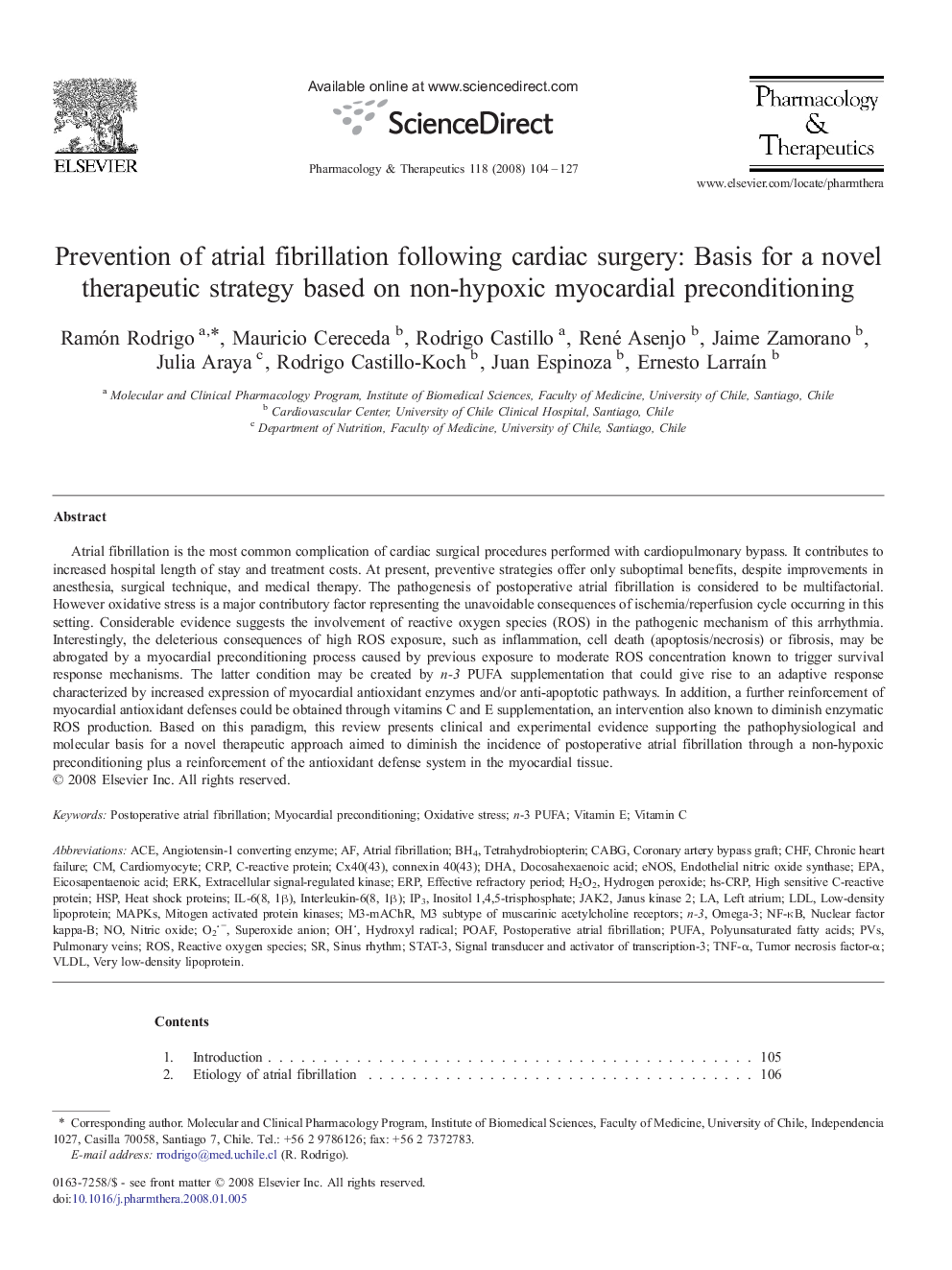| Article ID | Journal | Published Year | Pages | File Type |
|---|---|---|---|---|
| 2563643 | Pharmacology & Therapeutics | 2008 | 24 Pages |
Atrial fibrillation is the most common complication of cardiac surgical procedures performed with cardiopulmonary bypass. It contributes to increased hospital length of stay and treatment costs. At present, preventive strategies offer only suboptimal benefits, despite improvements in anesthesia, surgical technique, and medical therapy. The pathogenesis of postoperative atrial fibrillation is considered to be multifactorial. However oxidative stress is a major contributory factor representing the unavoidable consequences of ischemia/reperfusion cycle occurring in this setting. Considerable evidence suggests the involvement of reactive oxygen species (ROS) in the pathogenic mechanism of this arrhythmia. Interestingly, the deleterious consequences of high ROS exposure, such as inflammation, cell death (apoptosis/necrosis) or fibrosis, may be abrogated by a myocardial preconditioning process caused by previous exposure to moderate ROS concentration known to trigger survival response mechanisms. The latter condition may be created by n-3 PUFA supplementation that could give rise to an adaptive response characterized by increased expression of myocardial antioxidant enzymes and/or anti-apoptotic pathways. In addition, a further reinforcement of myocardial antioxidant defenses could be obtained through vitamins C and E supplementation, an intervention also known to diminish enzymatic ROS production. Based on this paradigm, this review presents clinical and experimental evidence supporting the pathophysiological and molecular basis for a novel therapeutic approach aimed to diminish the incidence of postoperative atrial fibrillation through a non-hypoxic preconditioning plus a reinforcement of the antioxidant defense system in the myocardial tissue.
